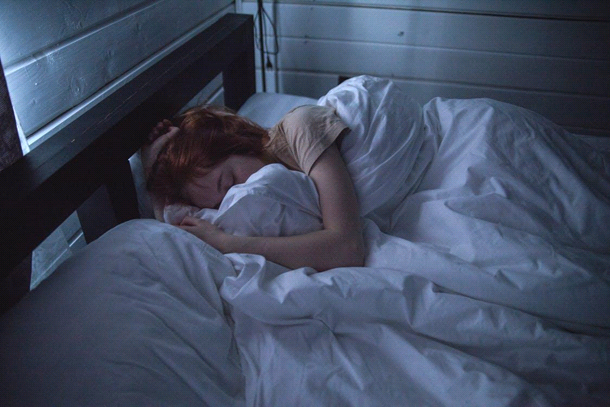Teen Angst and Anxiety: Not Just 4 John Hughes’ Movies
Teenagers bring a lot of their problems with them to the bedroom. A stressful school day, homework, activities, jobs, and social schedules cram a short 24 hours. Physiological and emotional reasons create these sleep-related difficulties.
The addition of video games, cell phones, tablets, and laptops in a teen’s bedroom create more distractions. It is no secret tobacco and alcohol are unfortunate addictions that create anxiety issues in teens on their own but they also prove as stimulants to cause sleep deprivation.
Consumption of caffeinated drinks along with energy drinks cause teens twice as likely to experience sleep problems.
With 8 to 10 hours sleep needed for a teen, studies show an average of 6.9 hours sleep by the time they enter senior year: a 1.5 hour decrease from sixth grade. This segment of the population equates to 69 percent of American teens sleeping less than 7 hours of sleep per night.
While the teen brain is in a stage of rapid development, a good night’s rest is critical. As children switch to their teenage years, studies have found a new phenomenon: sleep-phase delay.
A teen’s circadian rhythm shifts to a later time creating their internal biological clock to delay. On average, the delay affects falling asleep two hours later than as a child.
Arising in ages 14 to 16, anxiety and depression are commonly linked to insomnia resulting in possible suicidal thoughts, suicide attempts, and substance abuse disorders.
A published article in Sleep Medicine studied whether insomnia is related directly to depression, anxiety, and subtypes of each. Generalized anxiety disorder (GAD) along with panic disorder, OCD, separation anxiety, and social phobia were associated with teen night owls.
The American Academy of Pediatrics published a new policy statement encouraging a high school start time after 8:30 a.m. across the United States. With so many factors affecting a teen’s sleep, preventing early start times where students are not able to actively engage in the classroom can help alleviate fatigue, behavioral issues, and anxiety.
Waking up earlier for school days builds to daytime fatigue. Sleep pressure builds up as the week continues its pressures of work, social, and school pressures and commitments.
Attempting to catch up on sleep during the weekends and breaks does not help the accumulated sleep loss in the week.
Severe cases of GAD can not only suffer from depressive symptoms but insomnia at the same time. Those experiencing anxiety, worry, or struggle with falling asleep may be suffering from insomnia. Seeking help can help reduce symptoms. A few tips to stop insomnia include:
- Study separate from the place you sleep.
- Exercise regularly at least three hours prior to bedtime.
- Remove cell phones, tablets, laptops, and other forms of technology while in bed.
- Keep technology away from the nightstand.
- Relax 30 minutes prior to bedtime.
- Write thoughts in a handwritten journal to relieve any anxiety.
- Try yoga or meditation before bedtime and in the morning.
- Start healthy habits in the bedtime routine.
- Establish a sleep schedule by setting an alarm when it is bedtime.
- Eliminate caffeine, sugar, and energy drinks from your diet.
- Take naps during the day for 10 minutes or longer.
- Jump in the shower for a warm soak.
- Infuse lavender or other sleep oils in your bedroom at bedtime.
- Maintain a consistent, cool temperature in the bedroom.
- Block any light from windows to create a dark room.
- Stay away from bright lights 30 minutes prior to bedtime.
The normal signs of insomnia are not always from staying up past midnight. If your teen snores, sleep apnea may be the reason.
A person with obstructive sleep apnea temporarily stops breathing during sleep because the airway becomes narrowed or blocked. One common cause of obstructive sleep apnea is enlarged tonsils or adenoids (tissues located in the passage that connects the nose and throat). Being overweight or obese also can put someone at risk for it.
People with this sleep disorder may snore, have difficulty breathing, and even sweat heavily during sleep. Because it disrupts sleep, a person may feel extremely sleepy or irritable during the day.
People who show signs of obstructive sleep apnea, such as loud snoring or excessive daytime sleepiness, should talk to their doctor.
If you notice your teen is showing signs of sleep-deprivation, irritability, and a change in attitude, work together on establishing a bedtime routine. Don’t just ask your teen to consider the tips to sleep well but practice what you teach.
Hopefully a combination of these tips will help your teen reduce levels of anxiety, function more optimally at school, and avoid sleeping in the afternoon lack of sleep the previous night.
If anxiety is interfering with normal functionality, it is important to consult a doctor as soon as possible. A doctor may then provide the number to a sleep clinic. Call Alaska Sleep Clinic today for a free sleep assessment.
As the only independent sleep lab in Alaska with a Pediatric Sleep Medical Director, we have the expertise to help your son or daughter improve their sleep and their life!




